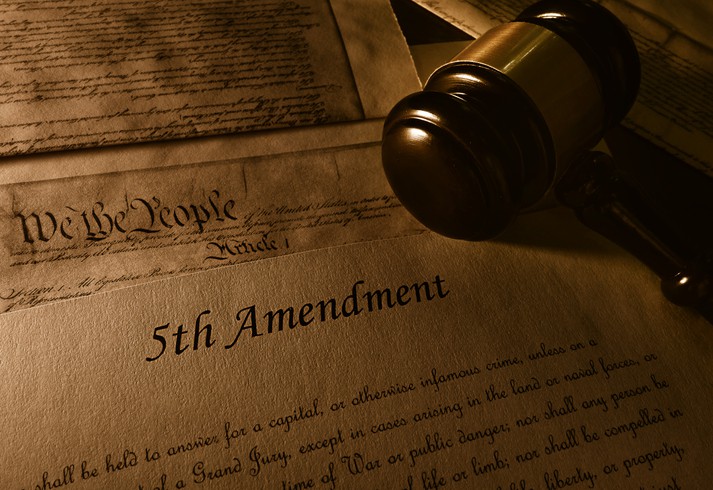
Under Virginia law, cheating on a spouse is illegal. In Virginia, any married person who voluntarily has sexual intercourse with a person who is not his or her spouse is guilty of adultery, which is punishable as a Class 4 misdemeanor. The maximum criminal penalty for adultery is a $250 fine, but the ramifications in a divorce action may be much more severe. Adultery can be used as a fault ground to obtain a divorce, may be a bar to spousal support and can be considered regarding child custody and equitable distribution of marital property.
Even so, what happens when a cheating spouse invokes his or her Fifth Amendment privilege against self-incrimination? In Virginia, a party can exercise his or her constitutional privilege against self-incrimination in both criminal and civil actions. Depending on the circumstances of the case, a cheating spouse’s paramour may also invoke the privilege. The Fifth Amendment can lead to frustrating consequences for the faithful spouse who wishes to discover specifics about presumed affairs. While the crime of adultery is rarely, if ever, prosecuted, judges will continue to allow those accused to plead the Fifth Amendment, until the current criminal code is amended.
Even though a spouse may plead the fifth, that doesn’t mean it’s a dead end. Due to a recent change in Virginia law, the judge is now allowed to make an “adverse inference” based on the spouse’s refusal to answer. Essentially, the judge can conclude that refusing to answer means there is no alternative answer that would be helpful to the accused. For more information on this particular topic, check out New Law Makes Proving Adultery Easier in Virginia.
Furthermore, in cases where an adulterous spouse chooses to invoke the Fifth Amendment, there are various legal arguments counsel can explore when trying to uncover the facts. First, in Virginia, a five-year statute of limitations applies to the crime of adultery. As a result, counsel may argue that there is no basis to invoke the Fifth Amendment. The privilege is lost when there is no longer a possibility of prosecution. Discovery and witness examination can be tailored to focus on years and times in the marriage which would fall outside the statute of limitations.
Similarly, while adultery is illegal in Virginia, this is not the case in all states. Technically, if an alleged affair occurred outside Virginia—in a state that has not criminalized adultery—there would be no basis for invoking the Fifth Amendment.
Further, a cheating spouse may waive the privilege with their own statements or answers to discovery. However, a waiver of the Fifth Amendment privilege must be intentional. The requirement for an intentional waiver means a party’s attorney cannot waive the privilege for their client. An effective waiver of a constitutional right is a voluntary abandonment of a known legal right.
In the case of Leitner v. Leitner, 11 Va. Cir. 281 (1988), the trial court found that a husband had effectively waived his Fifth Amendment privilege. In Leitner, the husband responded to his wife’s complaint for divorce, and alleged that he had been a “faithful and dutiful” husband. The wife’s counsel successfully argued that the husband had “opened the door” by alleging his faithfulness. As a result, the trial court judge found that the husband had waived his right to plead the Fifth when questioned about his acts of adultery.
Despite the ruling in Leitner, there is no mandatory precedent controlling how adultery and waivers are handled by Virginia courts, and subsequent cases have yielded varying results. It is important for spouses who are considering filing for divorce on adultery grounds to consult with an attorney well-versed in the interplay between adultery and the Fifth Amendment.
The attorneys at Livesay & Myers, P.C. have years of experience with divorce cases involving allegations of adultery. If you are facing a divorce in Northern Virginia, contact us to schedule a consultation today.
See also:
